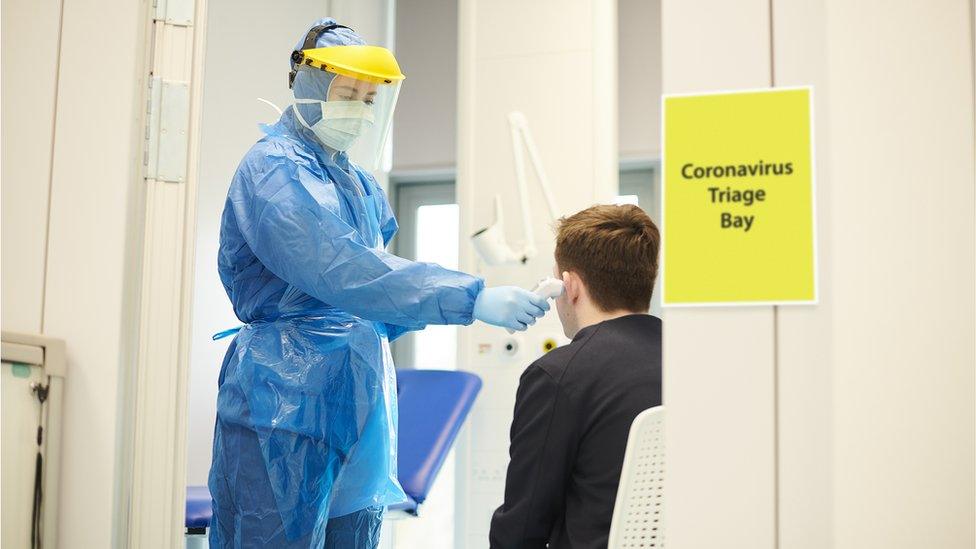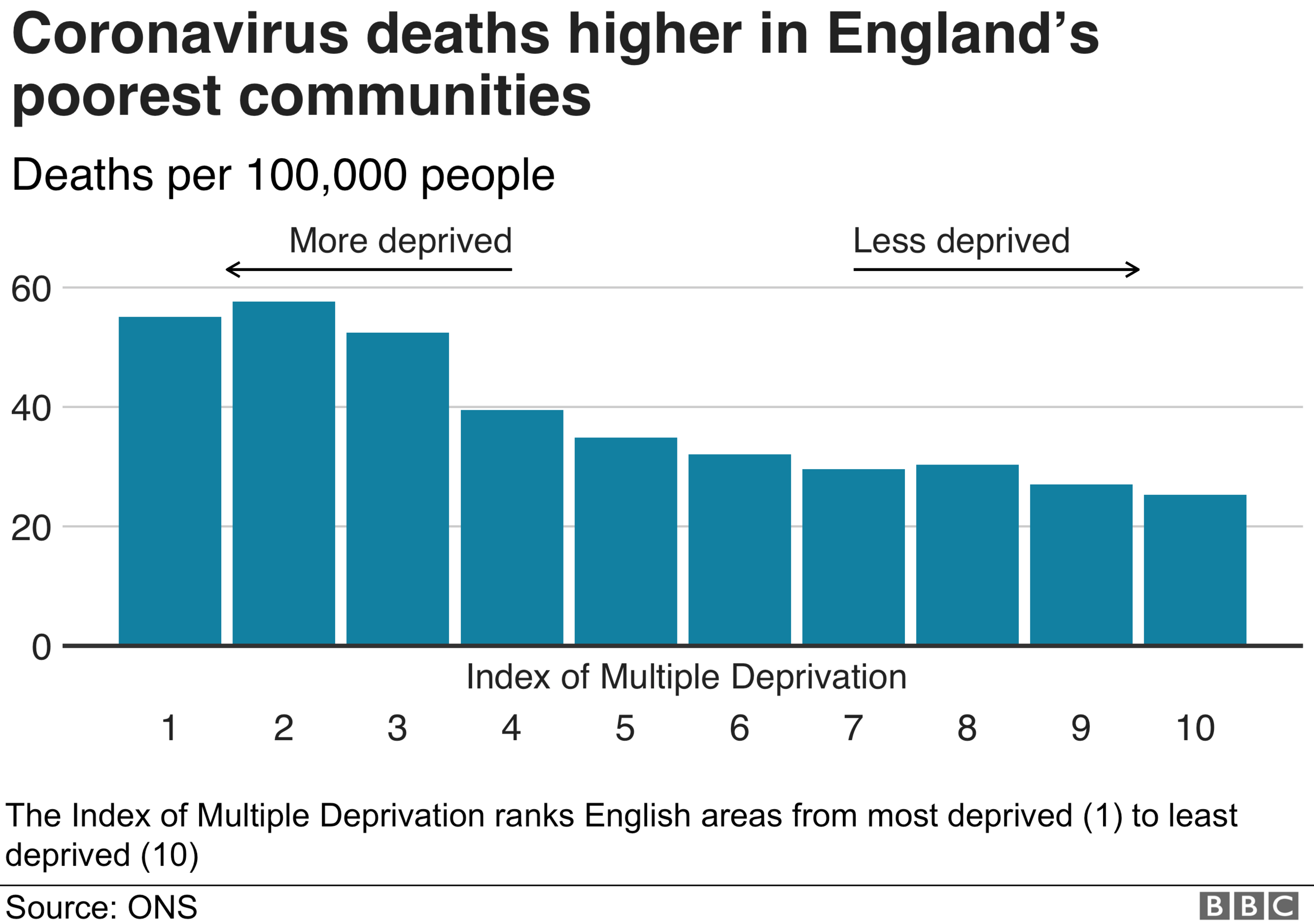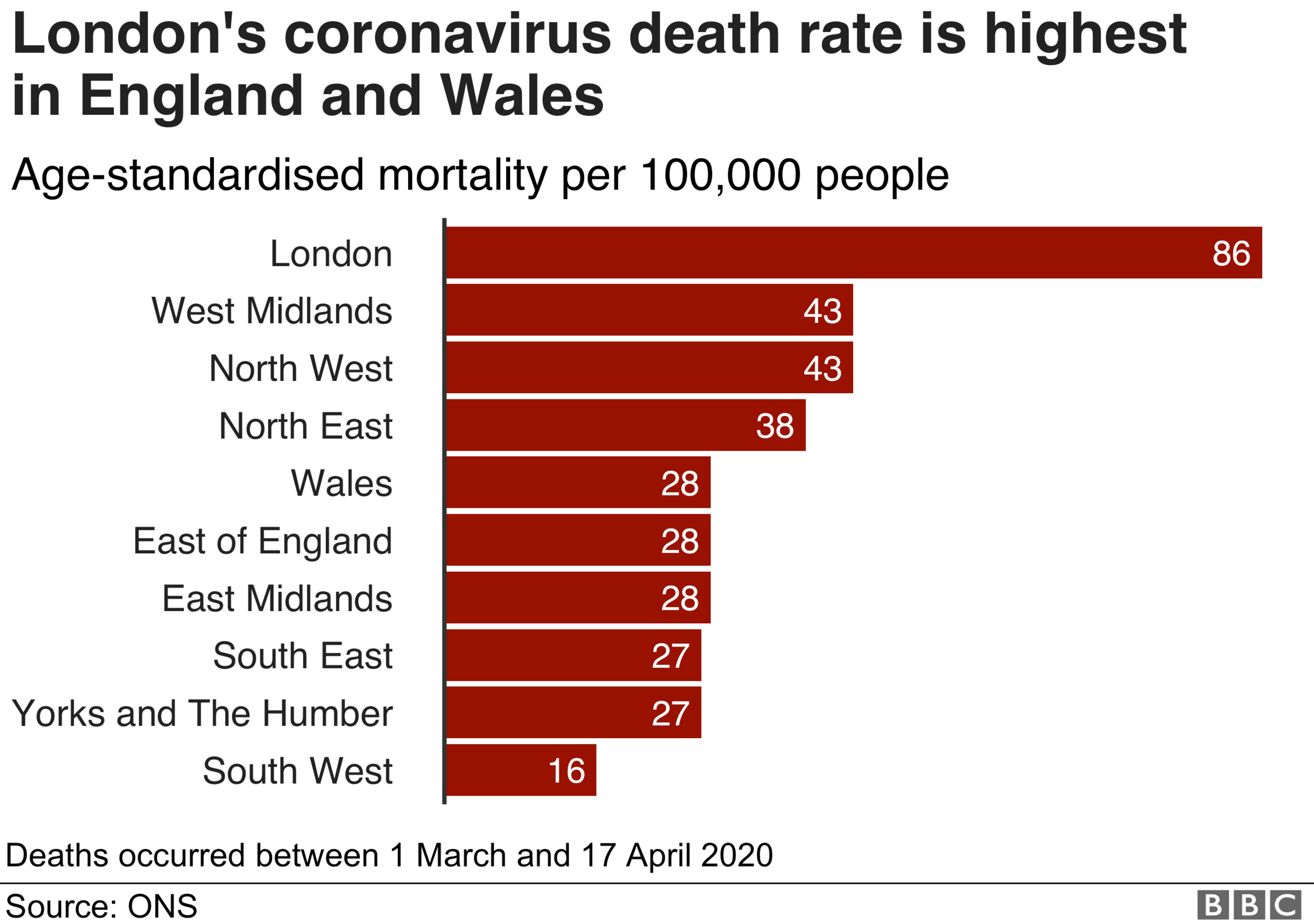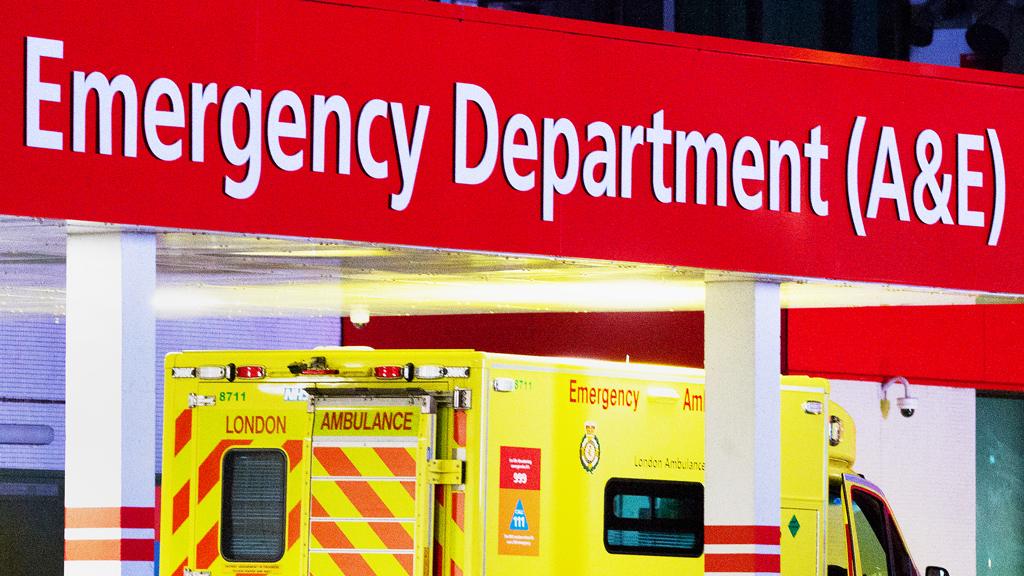Coronavirus: Higher death rate in poorer areas, ONS figures suggest
- Published

People living in more deprived areas of England and Wales are more likely to die with coronavirus than those in more affluent places, new figures suggest.
Office for National Statistics analysis, external shows there were 55 deaths for every 100,000 people in the poorest parts of England, compared with 25 in the wealthiest areas.
Mortality rates are normally higher in poorer areas.
But the ONS said coronavirus appeared to be adding to the problem.
"This is something that we are worried about and looking at," Health Secretary Matt Hancock said.
Speaking at the daily coronavirus briefing, Mr Hancock said his department was looking into the various ways the virus impacts different groups to understand it "as much as we possibly can".
Across the country, the highest rates of deaths have been in urban areas where lots of people live. The overall mortality rate in London has been almost double that of the next highest region.
The data also shows the Covid-19 mortality rate in the most deprived areas of England has been higher among men, with 76.7 deaths per 100,000 people, compared with 39.6 per 100,000 women.
"General mortality rates are normally higher in more deprived areas, but so far Covid-19 appears to be taking them higher still," said Nick Stripe, ONS head of health analysis.
Shadow health secretary Jonathan Ashworth said the report showed the virus thrived on inequality.
"Ministers must target health inequalities with an overarching strategy to tackle the wider social determinants of ill-health," he said.

The ONS used the Index of Multiple Deprivation, a relative measure of poverty last updated in 2019.
The index takes into account factors such as an area's income, employment, crime and health deprivation and disability.
The ONS studied the 20,283 deaths involving Covid-19 that took place between 1 March and 17 April. In England, it found the mortality rate in the most deprived areas was 55.1 deaths per 100,000 population, while the rate was 25.3 deaths per 100,000 in the least deprived areas.
In Wales, statisticians found the most deprived fifth of areas had a mortality rate of 44.6 deaths per 100,000 population, almost twice as high as the rate for the least deprived areas of 23.2 deaths per 100,000.
It also found:
South-west England had the lowest Covid-19 mortality rate, with 16.4 deaths per 100,000 population
The council areas with the highest Covid-19 mortality rates were all in London. Newham had the highest rate with 144.3 deaths per 100,000 population, followed by Brent at 141.5 and Hackney at 127.4

David Finch, a senior fellow at the Health Foundation, said people in deprived areas were at higher risk of exposure to Covid-19 because they were likely to live in cramped housing conditions.
He said those people were also more likely to have one or more long-term health condition, meaning they would be at greater risk of suffering severe symptoms from the virus if exposed.
'Forgotten victims'
Chief executive of children's charity Barnardo's Javed Khan said the ONS study was "worrying" but "unfortunately not surprising".
"Vulnerable children and families - and those already experiencing disadvantage - risk becoming the forgotten victims," he added.
"Without intervention, this crisis will be devastating for a whole generation - their mental health, safety, education and job prospects are on the line."
In a statement, the government said it had commissioned urgent work from Public Health England to understand the different factors that could influence the way someone was affected by the virus and would set out more details in due course.
"We are ensuring financial support for the poorest in society by increasing universal credit payments and speeding up the payment of statutory sick pay, as well as introducing the coronavirus job-retention scheme, the self-employment income support scheme, mortgage holidays and greater protection for renters."
The ONS analysis comes as a separate study from the Institute for Fiscal Studies (IFS) says coronavirus patients from black African backgrounds in England and Wales are dying at more than triple the rate of white Britons.
The IFS said a higher proportion of people from ethnic minority backgrounds lived in areas hit harder by Covid-19.
- Published9 June 2020

- Published5 July 2023

- Published16 April 2020